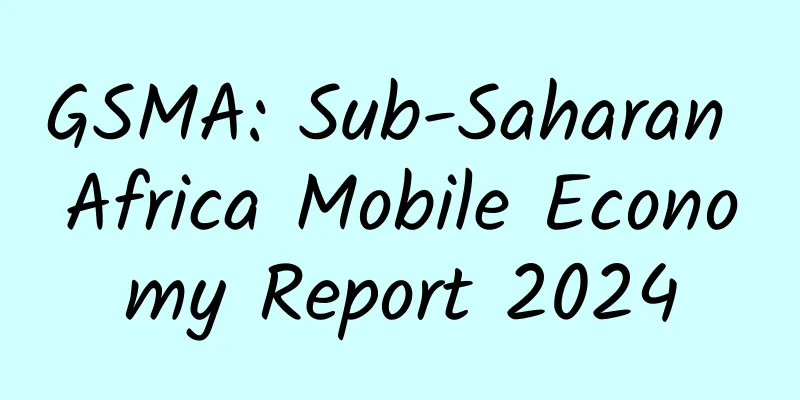GSMA: Sub-Saharan Africa Mobile Economy Report 2024

|
The GSMA has released its Sub-Saharan Africa Mobile Economy Report 2024, predicting that the mobile industry’s contribution to GDP will increase from $140 billion in 2023 to $170 billion by 2030 if key connectivity barriers are addressed. As digitalisation accelerates, 4G expansion will drive connections and is expected to account for half of all connections in 2030. However, large coverage gaps remain, with 13% of the population still not covered, and a 60% usage gap affects those who live within coverage areas but face barriers to getting online. Key findings from the 2024 report: Persistent usage gap: Mobile internet penetration in Sub-Saharan Africa reaches 27% by the end of 2023, but a large usage gap of 60% remains. Expanding 4G coverage and early 5G growth: 4G penetration in the region is expected to reach 50% by 2030, replacing 3G as the dominant technology. Although 5G adoption is still in its early stages, it is expected to reach 17% of total connections by 2030, mainly in South Africa, Nigeria, and Kenya. 5G economic impact and infrastructure needs: 5G alone is expected to contribute $10 billion to the region’s economy by 2030, accounting for 6% of the total economic impact of the mobile industry. Strengthening digital security: South Africa becomes the first country in Sub-Saharan Africa to implement the GSMA Open Gateway API, focusing on fraud prevention and security through Number Authentication and SIM Swap APIs. Generative AI potential: Generative AI is expected to contribute up to $1.5 trillion to Africa’s economy by 2030, with mobile operators increasingly using AI for customer engagement and network optimization. The report advocates a series of key actions to ensure sustainable growth and digital inclusion: 1. Affordability reforms: High costs remain a barrier to mobile access and the report calls for lower taxes on the sector. 2. Revitalize Universal Service Funds: Many universal service funds in sub-Saharan Africa are underperforming and are often hampered by inefficiencies. 3. Progressive spectrum policies: As data demand increases, the report urges governments to release more spectrum, especially in the 6 GHz band, and adopt policies that ensure efficient, affordable and environmentally sustainable mobile network expansion.
|
>>: YPulse: Instagram remains the favorite social platform for Gen Z and millennials
Recommend
Should I use cold water or hot water to make scallion pancakes? How to make scallion pancakes soft and delicious
In my country, many people like noodles very much...
What is the cause of vaginal dryness during intercourse?
Sex should be a happy and sweet moment for us, ev...
5 months pregnant cervix loose
Cervical relaxation is a common gynecological dis...
Pingdom: 24% of the top 10,000 websites in the world use Facebook's official plug-in
Facebook According to the latest report released ...
Is fetal arrest due to poor sperm quality?
For couples who want to get pregnant and have chi...
Can I drink Sprite or Coke when I'm pregnant?
Many girls are very nervous in the early stages o...
What does vaginal blowing mean?
Women who have had frequent miscarriages or have ...
Why are nectarines hairless? How to wash nectarines cleanly?
If you like eating peaches, you must know that mo...
Pus from nipple
Pus discharge from the nipple is a symptom that m...
When can I get pregnant after I remove the ring?
Regardless of the entire process of inserting the...
36-year-old woman looks like a "little old woman" because of droopy upper eyelids
Ms. Wang, 36, is troubled by her eyelids drooping...
How to prevent baldness and hair loss? Why are boys more prone to baldness than girls?
Baldness and hair loss are something that many pe...
Which animal in the Chinese zodiac is a vegetarian? Which animal in the Chinese zodiac is the most precious?
Ancient astronomers divided the day and night int...
How to apply for the 500 yuan housing subsidy during the epidemic in Hangzhou? Application conditions for housing subsidy during the epidemic in Hangzhou
Due to the epidemic, and considering the impact o...
How long should I lie flat after ovulation?
For couples who want to have children, they will ...









